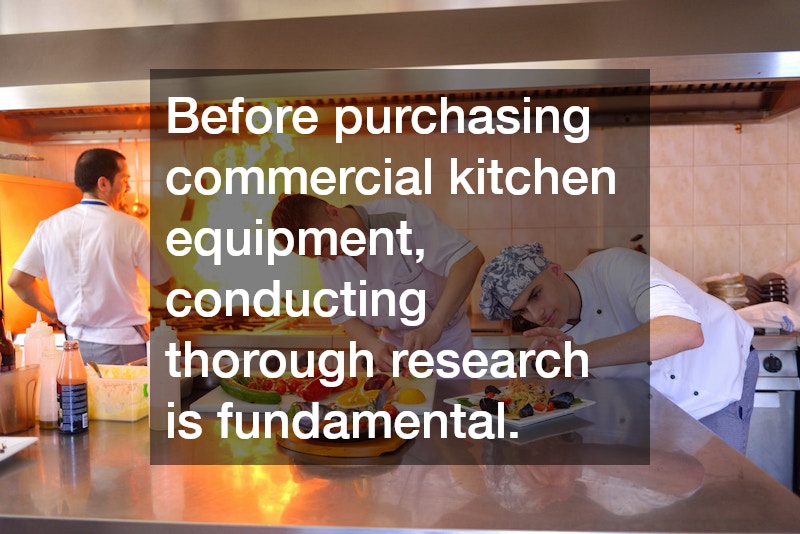When opening your first restaurant, it’s crucial to identify your culinary style and menu. The type of cuisine you plan to serve dictates the specific commercial kitchen equipment you’ll need. For instance, a pizzeria will require ovens and dough mixers, while a sushi restaurant will prioritize different appliances.
It’s important to also consider the volume of food preparation required in your establishment. A small cafe might function efficiently with minimal equipment, but a high-volume diner necessitates robust machinery.
Assessing these needs from the outset ensures your kitchen will be well-equipped to handle daily operations.
Moreover, the space available in your kitchen should influence your purchasing decisions. Smaller kitchens demand compact, multi-functional equipment, whereas larger spaces can accommodate more specialized machinery. Properly evaluating your spatial constraints helps optimize workflow and efficiency in your kitchen.
Research and Budgeting
Before purchasing commercial kitchen equipment, conducting thorough research is fundamental. Look into various brands, read user reviews, and consider product longevity and warranties. This thoughtful approach can significantly impact your initial investment and long-term satisfaction.
Budgeting for your kitchen setup requires careful planning. Allocate funds for essential items first, and then decide whether luxury or high-tech options fit within your financial plan. By prioritizing necessities, you ensure that your kitchen is fully functional without overspending.
Leasing options may also be worth exploring for those on a tighter budget. Leasing allows for lower initial costs and the flexibility to upgrade as your business grows. Nonetheless, it’s imperative to read contracts carefully to avoid hidden fees or restrictive terms.
Choosing Essential Kitchen Equipment
Start by identifying the must-have items fundamental to your menu. Refrigeration units, cooking ranges, ovens, and dishwashers usually form the backbone of any commercial kitchen. Selecting reliable, energy-efficient models can save on operational costs in the long run.
Pay attention to the materials and design of the equipment. Stainless steel is a popular choice for its durability, ease of cleaning, and resistance to bacteria. Additionally, consider the ergonomics of equipment placement to ensure safety and ease of use for your staff.
Integrate technology where possible to optimize kitchen operations. Appliances with programmable features can increase efficiency and precision in food preparation. As technology continues to evolve, staying informed can provide a competitive edge in quality and service.
Understanding Maintenance and Longevity
Proper maintenance is key to ensuring the longevity of your commercial kitchen equipment. Regular servicing and cleaning can prevent malfunctions and extend the lifespan of your machines. Keeping a maintenance schedule helps avoid unexpected downtime and costly repairs.
Training staff on the correct usage and care of kitchen equipment is equally important. Well-informed employees can identify potential issues early and handle appliances safely. This proactive approach minimizes accidents and maintains operational efficiency.
In addition, consider establishing a relationship with trusted repair technicians. Having a go-to expert for routine checks and unforeseen issues guarantees quick resolution and peace of mind. A well-maintained kitchen is fundamental to a restaurant’s success.
Finalizing Your Equipment List
After conducting research and considering your specific needs, compile a finalized equipment list. Ensure that every item serves a clear purpose and fits within your budget and space constraints. This list is critical as it guides your purchasing decisions and prevents impulse buys.
Stay focused on essential, versatile equipment that serves multiple functions. Multi-cookers, combination ovens, and multifunctional prep stations offer flexibility and efficiency. Choosing items that provide dual purposes maximizes space and capital investment.
Ultimately, the commercial kitchen equipment you select sets the foundation for your culinary endeavors. The right tools can enhance productivity, food quality, and customer satisfaction. Thoughtful selection and investment in your kitchen equipment are pivotal steps towards achieving restaurant success.
.




